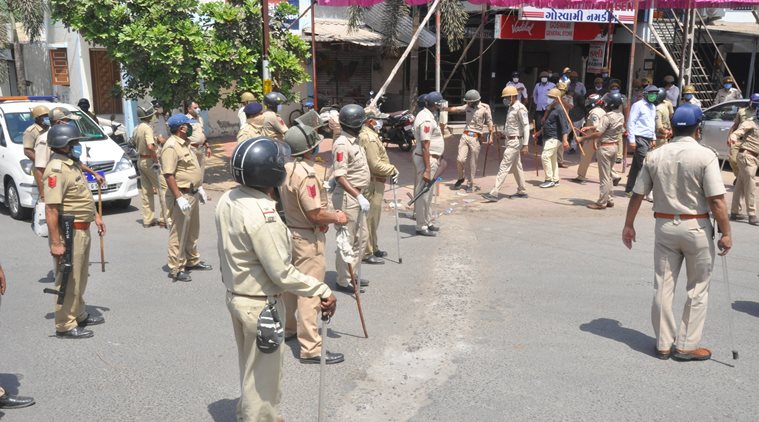 According to officials, the civilians, aged between 20 to 40 years, are given several responsibilities ranging from traffic policing to maintaining social distancing. (Representational)
According to officials, the civilians, aged between 20 to 40 years, are given several responsibilities ranging from traffic policing to maintaining social distancing. (Representational)
To ease pressure on its personnel and enforce the ongoing lockdown more effectively, the police in Jhansi city are being assisted by civil defence groups.
In the last few weeks, more than 300 members of the National Cadet Corps (NCC), the National Service Scheme (NSS), and the Civil Defence have been deployed alongside the local police. According to officials, the civilians, aged between 20 to 40 years, are given several responsibilities ranging from traffic policing to maintaining social distancing.
“When the lockdown was put in place, a large part of our police force was deployed at several barriers and border posts. This meant that there would be lesser resources within the city. We got in touch with Bundelkhand University and discussed participation of NCC cadets on a volunteer basis in regular policing. It is a novel experiment in the state and the defence volunteers have acted as force multipliers. The system will be evolved further,” said Superintendent of Police (City) Rahul Srivastava.
According to the police, the decision to add the civil volunteers was taken following instructions from the Centre and the state government. The police held a series of orientation sessions with the volunteers to explain their duties and powers. In the region, the 32nd and 55th Army Battalion are also available at present.
The volunteers are deployed across the city from 10 am to 2 pm. Their duties include checking passes at traffic barriers, maintaining queues at grocery and liquor shops, conducting awareness drives about wearing masks, and maintaining social distancing at ATMs and other public places.
The community police do not have the power to make arrests, and at least one policeman is stationed in an area with multiple volunteers. After liquor sale was permitted, the Civil Defence volunteers came in handy because of their age advantage and extra numbers, said the police.
The volunteers have also become informal sources for the police as they pass on information about possible illegal activities, especially with regards to domestic violence and crowd gatherings.
“We have an integrated WhatsApp centre through which all the volunteers are connected. In several cases, they have become our eyes and ears since they provide anonymous tip offs. If they observe a case of domestic violence or people simply violating curfew, they pass on pictures and information helping police action immensely,” said Srivastava.
Even though NCC cadets have a uniform, locals initially did not take them seriously and refused to cooperate. The young volunteers are also facing the challenge of maintaining their study schedule.
“People from urban areas tried to bully us and they told us they don’t need to show us passes. But gradually they got used to us. Several people from villages are usually very careful and wear masks even if they see us from a distance. We are getting hands-on experience. The university has cooperated with us and has given us slots for online classes so we don’t miss,” said Sukhda Nagpal (20), a BSC student from Bundelkhand University and an NCC volunteer.
The university’s NCC Director Sunil Kumar Kabia said it was a “wonderful opportunity” for the cadets to learn real-time policing. “Their energies are being channelised in the right direction. They are not only proving to be assets for lockdown enforcement, but are also doing spy duties to provide crucial information. Several of the cadets can opt for online classes later so that their syllabus is not missed,” he added.
A Twitter handle called “maibhikhaki [I am also the police]” has been created. The volunteers post their activities there, and help the police bust fake news and rumours.